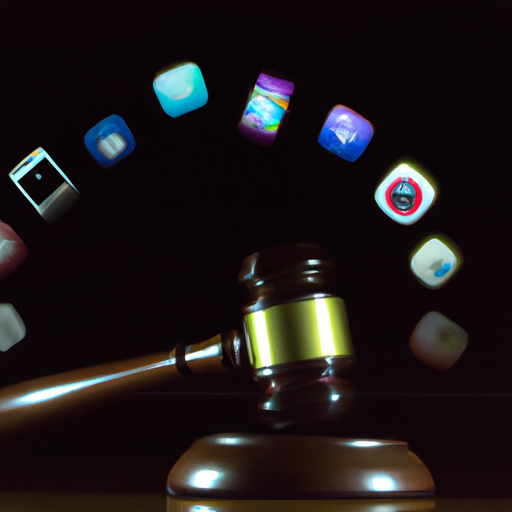In today’s digital age, social media platforms have become integral to our lives, enabling us to connect, share, and engage with the world like never before. However, with this increased reliance on social media comes a potential for legal disputes. As businesses and individuals navigate the vast landscape of online communication, they may encounter various issues such as privacy breaches, defamation, intellectual property infringement, and more. This article aims to explore the complexities of social media claims and shed light on how hiring a skilled attorney can be essential in protecting your rights and interests. Whether you’re a business owner looking to safeguard your brand’s reputation or an individual seeking recourse for an online attack, understanding the intricacies of this evolving area of law is paramount. Read on to learn about the most frequently asked questions regarding social media claims and find expert guidance on how to navigate these treacherous legal waters.
Understanding Social Media Claims Lawsuit
Social media has become an integral part of our lives, allowing individuals and businesses to disseminate information and connect with a wide audience. However, with the ease of accessing and sharing content, there has been a rise in social media claims lawsuits. These lawsuits are legal actions taken against individuals or companies for various reasons related to their social media activities. It is important for businesses to understand what social media claims lawsuits entail and how they can protect themselves.
What is a Social Media Claims Lawsuit?
A social media claims lawsuit is a legal action taken by an individual or entity against another individual or entity for issues arising from their social media activities. These lawsuits can encompass a wide range of claims, including defamation, invasion of privacy, copyright infringement, and false advertising. The plaintiff in a social media claims lawsuit seeks compensation for damages incurred as a result of the defendant’s actions on social media platforms.
Why do Companies Face Social Media Claims Lawsuits?
Companies may face social media claims lawsuits due to various reasons. One common reason is defamatory statements made by employees or representatives of the company on social media platforms. Such statements can damage the reputation of individuals or other businesses, resulting in financial losses. Companies may also face lawsuits for copyright infringement if they use copyrighted material without permission on their social media accounts. False advertising claims can also arise if a company makes misleading statements about their products or services on social media platforms.
Types of Social Media Claims Lawsuits
Social media claims lawsuits can take various forms, depending on the nature of the claim. Some common types of social media claims lawsuits include:
- Defamation Lawsuits: These lawsuits arise when a false statement is made on social media that harms the reputation of an individual or company.
- Invasion of Privacy Lawsuits: These claims involve the unauthorized use or disclosure of private information on social media platforms.
- Copyright Infringement Lawsuits: These lawsuits occur when copyrighted material is used without permission on social media platforms.
- False Advertising Lawsuits: These claims arise when a company makes false or misleading statements about their products or services on social media.
Legal Basis for Social Media Claims Lawsuits
Social media claims lawsuits are based on various legal theories, depending on the nature of the claim. Some common legal bases for social media claims lawsuits include:
- Defamation: This is a claim in which the plaintiff alleges that the defendant made false statements about them that harmed their reputation.
- Copyright Infringement: This claim involves the unauthorized use of copyrighted material without permission from the copyright owner.
- Invasion of Privacy: This claim arises when the defendant intrudes upon the plaintiff’s private affairs or discloses private information without consent.
- False Advertising: This claim occurs when the defendant makes false or misleading statements about their products or services.

Steps to Take When Facing a Social Media Claims Lawsuit
When a company is faced with a social media claims lawsuit, it is important to take immediate action to protect their interests. Here are the steps that should be taken when faced with a social media claims lawsuit:
Consulting with an Experienced Business Lawyer
The first step is to consult with an experienced business lawyer who specializes in social media claims lawsuits. A skilled attorney will guide you through the legal process, assess the merits of the claim against your company, and develop an effective defense strategy.
Gathering Evidence and Documentation
Next, it is crucial to gather all relevant evidence and documentation related to the social media claim. This may include screenshots of social media posts, records of communication with the plaintiff, and any other evidence that can support your defense.
Evaluating the Merits of the Claim
Once all evidence is collected, your lawyer will evaluate the merits of the social media claim. They will assess whether the claim has a solid legal basis and if there are any defenses available to your company.
Developing a Defense Strategy
Based on the evaluation of the claim, your lawyer will develop a defense strategy tailored to your specific case. This may include challenging the credibility of the plaintiff, proving the statement made on social media is true, or demonstrating that the use of copyrighted material falls under fair use.
Negotiating Settlement or Litigating in Court
After developing a defense strategy, your lawyer will explore the possibility of negotiating a settlement with the plaintiff. If a settlement cannot be reached, they will proceed with litigation in court, presenting your case before a judge or jury.
How to Protect Your Business from Social Media Claims Lawsuits
Prevention is always better than dealing with the consequences of a social media claims lawsuit. Here are some measures you can take to protect your business from such lawsuits:
Implementing Clear Social Media Policies
It is essential to have clear and comprehensive social media policies in place for your employees. These policies should outline acceptable and unacceptable behavior on social media platforms and provide guidance on representing your company online.
Educating Employees on Proper Social Media Use
Alongside implementing social media policies, it is crucial to educate your employees about proper social media use. This includes training sessions on what can and cannot be shared on social media, the importance of being mindful of their posts, and the potential consequences of their actions.
Monitoring Social Media Activities
Regularly monitoring your company’s social media activities can help detect and address any potential issues promptly. This can involve using social media management tools to track posts, comments, and mentions related to your company and promptly addressing any concerns or complaints.
Responding to Complaints or Allegations
In the event that your company receives a complaint or allegation on social media, it is important to respond promptly and professionally. Address the issue publicly, offering an apology if necessary, and demonstrating a willingness to resolve the matter amicably.
Seeking Legal Advice and Regular Reviews
To ensure ongoing compliance with social media laws and regulations, it is advisable to seek legal advice from a business lawyer specializing in social media law. Regular reviews of your social media policies and practices can help identify any potential areas of risk and make necessary adjustments.

Damages and Remedies in Social Media Claims Lawsuits
When it comes to social media claims lawsuits, damages and remedies sought by the plaintiff can vary.
Compensatory Damages
Compensatory damages are intended to compensate the plaintiff for any actual losses or harm suffered as a result of the defendant’s actions on social media. This may include financial losses, damage to reputation, or emotional distress.
Punitive Damages
In cases where the defendant’s conduct is deemed particularly malicious or reckless, punitive damages may be awarded. The purpose of punitive damages is to punish the defendant and deter similar behavior in the future.
Injunctive Relief
Injunctive relief involves seeking a court order to stop the defendant from continuing the action complained of on social media. This can be an effective remedy to prevent further harm or damage.
Cease and Desist Orders
A cease and desist order is a court order demanding that the defendant stop engaging in specific actions on social media that are harmful or illegal. Failure to comply with a cease and desist order can result in further legal consequences.
Corrective Advertising
In cases of false advertising claims, a court may order the defendant to engage in corrective advertising to rectify any misleading statements made on social media. This can involve issuing public statements or advertisements to correct the false information.
Other Available Remedies
Other potential remedies in social media claims lawsuits may include account suspension or termination, injunctions against sharing specific content, or orders for the removal of defamatory or infringing content.

Frequently Asked Questions about Social Media Claims Lawsuits
What is defamation and how does it apply to social media claims lawsuits?
Defamation refers to false statements made about a person or business that harm their reputation. In the context of social media claims lawsuits, defamation can occur through posts, comments, or other content shared online. If a false statement is made on social media platforms and causes harm, the affected party may pursue a defamation claim.
Can an individual be held personally liable for social media posts made on behalf of a company?
In certain circumstances, an individual can be held personally liable for social media posts made on behalf of a company. If the individual has acted outside the scope of their employment or knowingly made false statements, they may be personally responsible for any resulting harm or damages.
What should I do if my company receives a social media claims lawsuit?
If your company receives a social media claims lawsuit, it is essential to seek legal advice immediately. Consult with an experienced business lawyer who can guide you through the legal process, assess the merits of the claim, and develop a strong defense strategy tailored to your specific case.
How long does a social media claims lawsuit typically last?
The duration of a social media claims lawsuit can vary depending on several factors, including the complexity of the case, the court’s schedule, and whether a settlement is reached. Some cases may be resolved within a few months, while others can take years to reach a resolution.
Can social media posts be used as evidence in a lawsuit?
Yes, social media posts can be used as evidence in a lawsuit. Courts often consider social media posts as admissible evidence, particularly if they are relevant to the case at hand. It is essential to be cautious about what you post on social media, as it can potentially be used against you in legal proceedings.
By understanding the nature of social media claims lawsuits, taking proactive measures to protect your business, and seeking legal advice when faced with a lawsuit, you can navigate this complex area of law and safeguard your company’s reputation and financial well-being. If you have any further questions or need assistance with a social media claims lawsuit, do not hesitate to contact our experienced business lawyers for a consultation.
